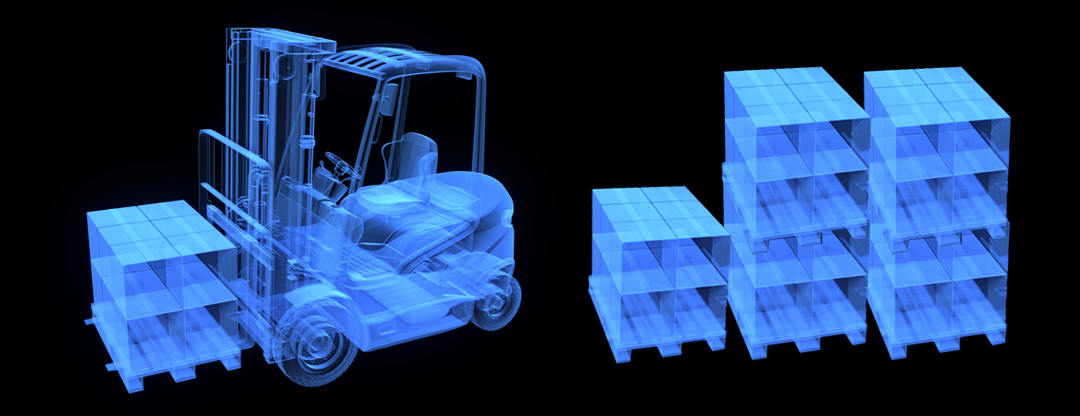Today, air freight is a backbone of global commerce, transporting millions of products worldwide. This essential service enables individuals and businesses to access goods and resources from around the globe and drives international economic growth. While air freight has revolutionized supply chains, it also faces challenges. One of those challenges is balancing the need for safe and effective security screening with the efficient movement of goods.
Air cargo security screening is paramount to the global supply chain, safeguarding passengers, crew, aircraft, and protecting cargo. Yet, the screening of air cargo faces some hurdles. The vast variety of cargo types, sizes, and shapes, coupled with an intricate logistics network, and a growing volume of shipments, make efficient and effective screening a complex undertaking.
Balancing Security and Efficiency
In an ideal scenario, every piece of cargo could be subjected to rigorous, human-intensive inspections. However, the realities of time and cost constraints necessitate a more efficient approach. To ensure both security and economic viability, cargo inspections must be conducted in a timely yet thorough manner.
Physical vs Indirect Screening
Physical examination and indirect advanced screening are two distinct but complementary processes used in air cargo security screening. While both aim to identify potential threats, they employ different methods and pose different risks.
Physical Examination involves direct visual inspection of the cargo, often accompanied by manual handling or the opening of packages. While physical examination allows for a more in-depth assessment of the cargo’s contents and appearance, it also carries certain risks. Here are some potential drawbacks:
- Improper handling or repackaging can cause damage to cargo.
- Physical examination can increase the risk of contamination, especially for sensitive products like pharmaceuticals or food.
- Physical examination can be time-consuming, leading to delays in the processing of cargo.
- Physical examination of certain types of cargo may pose health risks to personnel, particularly if they come into contact with hazardous substances.
- Cargo may be exposed to unauthorized personnel, increasing the risk of security breaches or tampering.
To mitigate risks, the use of advanced screening technologies can help reduce the need for excessive physical examination. However, it’s important to note that physical inspection may still be necessary in certain cases, such as when:
- Screening technology is unable to provide sufficient detail or clarity.
- Screening technology detects something suspicious that requires further investigation.
- The shipment is considered a high-risk due to its origin, destination, or contents.
Indirect Screening uses advanced technologies, such as X-ray machines or explosive trace detection (ETD) devices, along with K9 screening to examine cargo without requiring physical examination. Screening is generally faster and more efficient than physical examination.
These technologies are non-invasive and they reduce the risk of damage to the cargo, enhance the detection of potential threats, and minimize disruptions to the flow of air cargo. Technological advancements are continually refining the screening of cargo for potential threats and innovative technologies are also being employed to preserve product quality and safety during air transport.
Advanced Screening Technology Helps Reduce Damage to Air Cargo
Overall, advanced screening technology contributes to a safer and more efficient transportation process, reducing the likelihood of damage to air cargo.
- Improved Handling: More efficient screening processes often involve less manual handling of cargo, reducing the risk of damage during transportation and inspection.
- Optimized Packaging: By providing insights into the internal contents of packages, advanced screening can help identify potential vulnerabilities and suggest improvements in packaging to protect fragile items.
- Early Detection of Issues: Advanced technologies can detect damage or defects in cargo before it is loaded onto the aircraft, allowing for timely repairs or replacements.
- Reduced Delays: Faster screening processes can minimize the time cargo spends in transit, reducing the risk of damage due to extended exposure to environmental factors or rough handling.
- Enhanced Security: By identifying and preventing security threats, advanced screening can help to avoid damage caused by unauthorized access or tampering with cargo.
Benefits of a Third-Party Air Cargo Screening Facility
By partnering with a reputable third-party air cargo screening provider, shippers and airlines can reduce excess handling of cargo during security screening and lower the risk of damage to air cargo.
A third-party air cargo screening facility located at or near an airport can offer several significant advantages. By consolidating screening operations into a centralized location, these facilities can improve security, enhance efficiency, reduce costs, and promote economic development.
Screening facilities can employ highly trained personnel with expertise in security protocols, advanced screening technologies, and threat detection. They invest in state-of-the-art screening equipment and software, enabling them to identify potential threats more accurately and quickly.
These TSA-certified screening facilities can adapt to changing security requirements more efficiently and respond quickly to new threats or increased demand, ensuring that screening operations remain effective and uninterrupted.
Commercial Freight Services (CFS)
Commercial Freight Services (CFS) is authorized to assist shippers, freight forwarders, and air carriers with air cargo screening from their hub in Michigan near Detroit Metropolitan Airport (DTW). CFS is a TSA Certified Cargo Screening Facility (CCSF) and TSA Certified Cargo Screening Facility-K9 (CCSF-K9) provider offering air cargo screening using K9 screening (EDC), x-ray screening, and explosive trace detection (ETD) technologies.
To speak with a CFS cargo screening specialist: Phone: (866) 255-6153, email: info@cfsdtw.com – or request a callback consultation.

